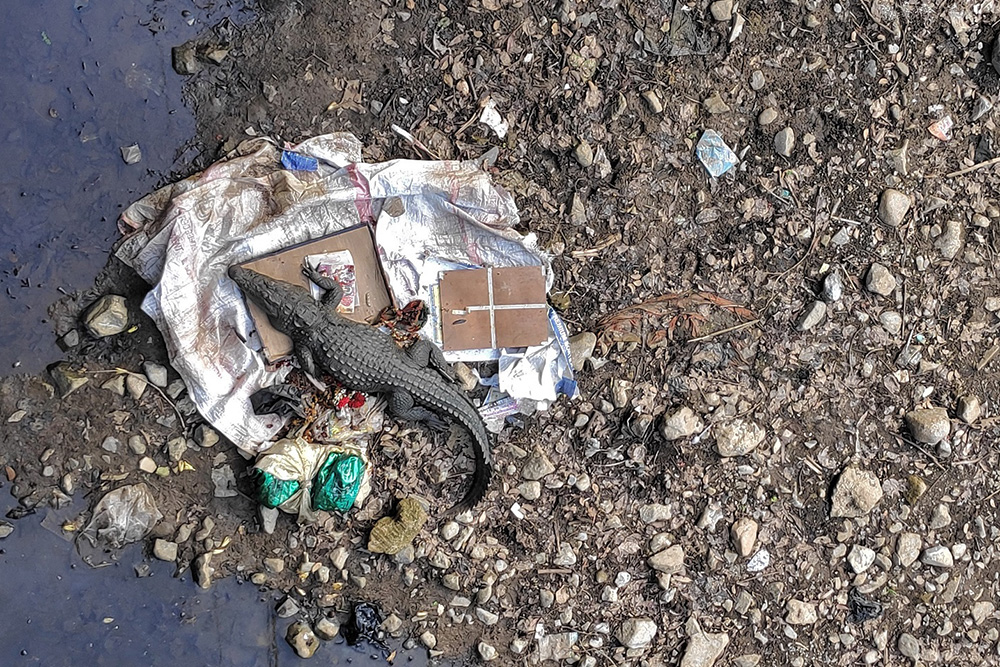
Plastic waste is a common sight in aquatic habitats like ponds, rivers, lakes and oceans and is a major problem. There is a growing body of scientific evidence of the slow degradation of plastic and its impact on aquatic food webs. Plastics also act as physical barriers to animals and impede their movements.
This marsh crocodile (Crocodylus palustris) was seen basking in a pile of plastic waste in a river in Girnar close to the Gir Forest in Gujarat. Muggers have also been commonly reported from urban areas such as the Vishwamitri river in Vadodara.
Marsh crocodiles or muggers are medium-sized crocodiles and widely occur in lakes, rivers, and marshes across the Indian subcontinent. They feed on birds, small reptiles, snakes and freshwater fish. They also scavenge opportunistically on carrion. Muggers are a protected species under the The Wildlife Protection Act (WLPA) 1972, and threats to them come from habitat destruction, pollution and hunting. This aerial photograph depicts the unfortunate reality of the prevalence of plastic waste in wildlife habitats and its influence on the lives of these animals.

 CI is a non-profit, non-commercial portal that aims to facilitate wildlife and nature conservation by providing reliable information and the tools needed to campaign effectively.
CI is a non-profit, non-commercial portal that aims to facilitate wildlife and nature conservation by providing reliable information and the tools needed to campaign effectively.
Chosen as 'Picture of the Week'
Despite plastics being non-biodegradable, most users consume plastic products as single-use items, after which they persist in landfills for centuries. When buried in landfills, plastics can leach toxic chemicals, which in turn contaminate surrounding soil, groundwater and surface water bodies.